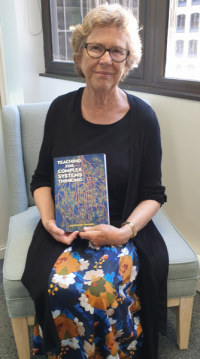Authored by Kaihautū Rangahau | Chief Researcher Rosemary Hipkins
You are here
NZCER Blogs
A number of NZCER staff contribute to our blogs and we link to and draw on external expertise. We hope it is a useful source of information, ideas and support about NZCER's work and wider educational and assessment issues. We welcome your questions and comments.
Please refer to the NZCER community guidelines for participation on NZCER blog posts.
- Add new comment
By Rachel Bolstad
Yes, education was on the agenda, and there were some positive developments.
With so much Covid news coming at us every day, the Emissions Reduction Plan (ERP) may not be high on many educators’ radar. You might be asking:
-
What is the ERP?
-
Why do I need to learn another acronym?
Here's an opinion piece by one of our Senior Researchers Dr Mohamed Alansari entitled ‘In defence of the future’. The piece is motivated by but not a response to ‘In defence of science’ and opines about the importance of the nation reflecting on free speech and thought leadership in relation to schooling.
Are our school students learning what they need to know and be able to do? Are they being taught in ways that motivate them to learn and do the hard yards when things are challenging? What support do teachers and school leaders need so that we can answer yes to these questions?
We’ve experienced significant disruptions to schools, businesses, and everyday life as a result of the COVID-19 pandemic. We’ve seen people and systems adapt quickly to a highly unusual situation. Schools, whānau, and education sector organisations across Aotearoa have mobilised resources, thought creatively, worked collaboratively, and responded compassionately to make things work.
“I wish I’d known that when I was teaching" is something I said to myself several times while I was working on the latest Insights for Teachers report.
This article started life as a literature review I completed as the final paper in the Postgraduate Diploma in Social Science Evaluation Research at Massey University. As a busy researcher and evaluator, “doing” evaluation doesn’t leave much time for “thinking” about evaluation, and even less time for “writing” about evaluation.












